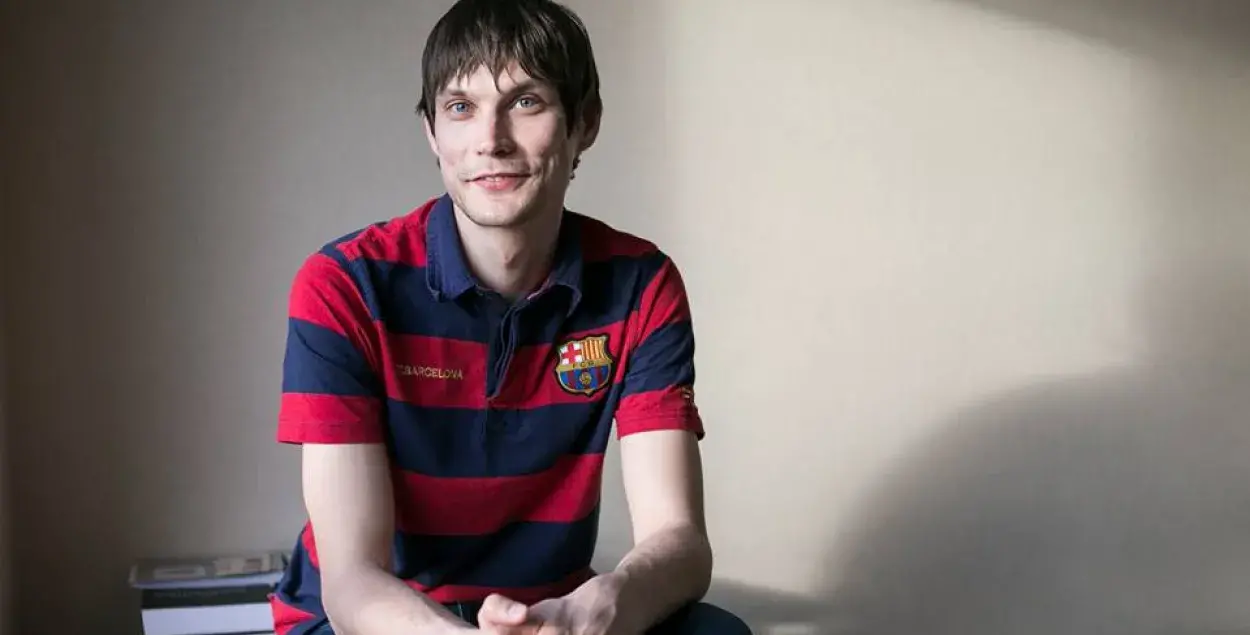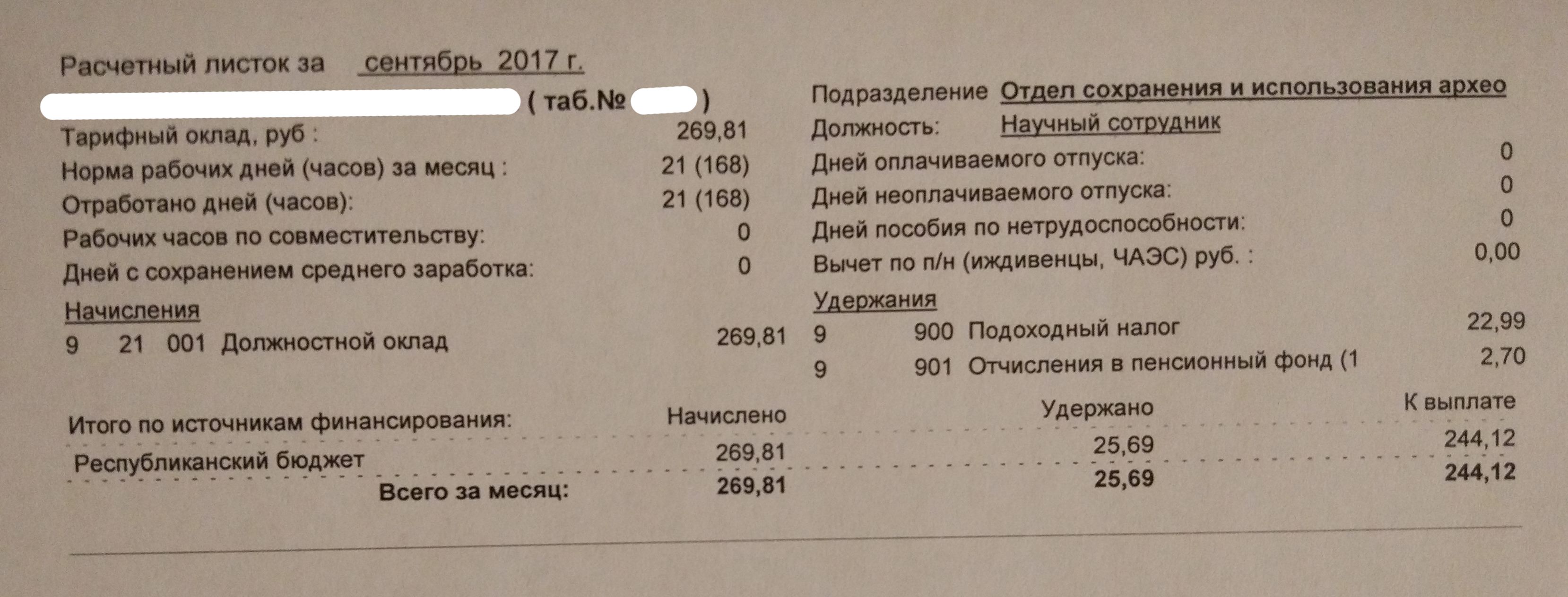How Belarus Academy of Sciences researcher survives on $137 monthly wage

Photo from social media
Vital Asheichyk, a young research fellow from the Institute of History at the Belarus Academy of Sciences, published on Facebook his pay slip for September 2017. The monthly wage of the young archeology scholar who specializes in the Middle Stone Age is BYN269.81(gross) or BYN 244.12 ($137) after taxes. This is the year of 2017 officialled marked as The Year of Science in Belarus. Vital says he posted the photo of his pay slip 'simply to share.'

Euroradio: When you were getting employed at the Institute of History, were you aware of your monthly pay?
Vital Asheichyk: Public sector is known for low salaries. I was aware. The only thing is that when I got this job in 2014, it was higher in the USD equivalent. Our working hours are fixed - from 0900 till 1745. Lunch is 30 minutes. This is how a normal working day looks like when you are not on a field trip. I and my colleagues are on the road very often on research missions. Generally speaking, I study the Mesolithic period on the territory of Belarus; or to be more precise, I focuse in my research on the technological aspects of the adaptation of the ancient population during the Metholitic period at the time of transition from the Ice Age to the geological Modern Age. The work behind this involves working with archeological material, writing scholarly articles, preparing presentations and speaking at conferences. Besides, every archeologist spends quite a lot of time in scientific expeditions, after which he or she has to write scholarly reports about field work. It is also our responsibility to maintain the archeological collections at the Institute. On top of that, I do daily office routine: corresponding with colleagues, relations with various institutions in Belarus, organizational matters and other things.
Euroradio: How do you live on such a miniscule wage? Did you run an experiment "How to survive on BYN269 (around $137)?"
Vital Asheichyk: No, I did not conduct an experiment. It is hard to say what this pay is enough for, because I have to earn extra money. Working at the Institute, I sometimes have opportunities to do something extra - but this is not regular. For example, we participate in rescue excavations when archeological sites happen to be in the construction areas. Under the law, the sites must be studied. Our institute carries out such excavations before the implementation of investment projects begins. Anyway. whatever I earn extra on the diggings does not really change the whole picture - I am still far away from the average salary in Minsk or at least in the public sector.
Euroradio: Do you plan to change your job?
Vital Asheichyk: I and my colleagues definitely think that at some point we will need to do so, because there is no future both in terms of career growth and higher salaries. It is problematic to live on the money that one can make on archeology in Belarus.
Euroradio: Where else but Academy of Sciences can archeologists work in Belarus?
Vital Asheichyk: One can do anything but archeology (laughs). I am university trained with several diplomas. I speak two foreign languages. I think I could find an ordinary job without a problem. But I would like to finish my dissertation - something I need six months or another year for. I will see what to do after that.
Euroradio: What will you spend your September pay (BYN269) for?
Vital Asheichyk: I have already spent on food, my monthly public transport ticket and internet.
Euroradio: Only young researchers earn so little?
Vital Asheichyk: This is a standard pay rate for a research fellow for a 40-hour working week. If we do something extra, we can make more. Our senior colleagues get more because they receive fringes for academic degrees and titles. As of today, I am still writing my dissertation. But the fringe benefit for the academic title is around BYN80-100 ($45-50). The difference between a junior researcher and a research fellow is around BYN10-15. Correspondingly, the same is the difference between a research fellow and a senior research fellow. I can say that my salary of a research fellow in the summer was BYN 253 or 12 rubles less than the minimum wage in Belarus. The institute covered this difference so that the salary matched the minimum monthly pay.
Euroradio: How does a person whose salary is less than the minimum pay feel?
Vital Asheichyk: We live in a civilized society, a civilized country. On the government level, they say that science is a priority and that we stand on the innovative path of development. In reality, people who are at the cutting egde of science receive less than a cleaner at our institute. It does not feel good." Moreover, to do what I and my colleagues do, one needs to study for five years at a university, one year doing Master's degree and three years at a post-graduate school.
Euroradio: Having published your pay slip, do you expect problems with your bosses?
Vital Asheichyk: Naturally, I am nervous, because I know very well there will be problems. But what can I do? This is the truth! I have nothing to be ashamed of. I am a public person, because all my works are published in scholarly journals. Everyone can check and assess if what we do is worthy. Comparing our salaries with the ones of scholars in other countries, I do not have exact numbers. Anyway, I feel they get more. Fundamental science in every country is supported by the government. In the West, they have more opportunities for research. Fundamental science requires not only salaries for scholars but also funding to procure equipment and conduct expensive tests. We do not receive this money from our government.


















